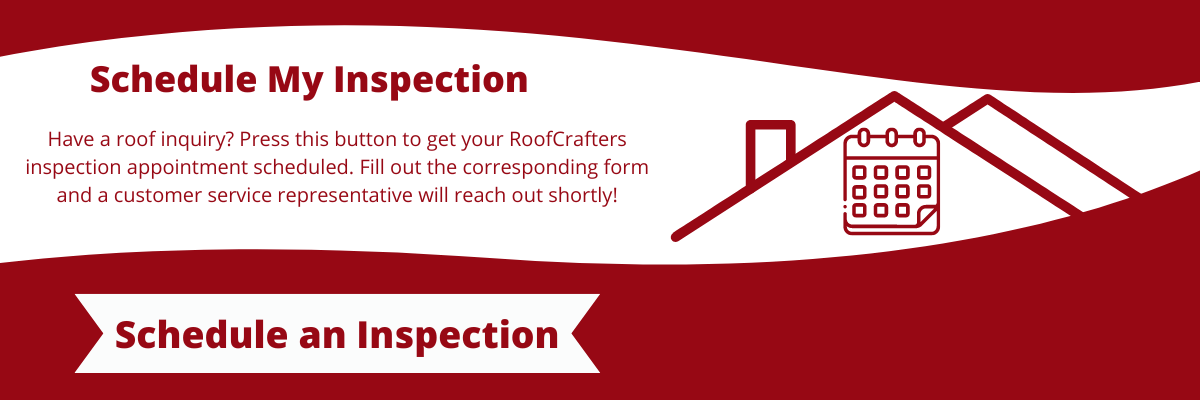Which Roofing Material is Most Compatible With My Roof Style?
January , 2024 | 6 min. read
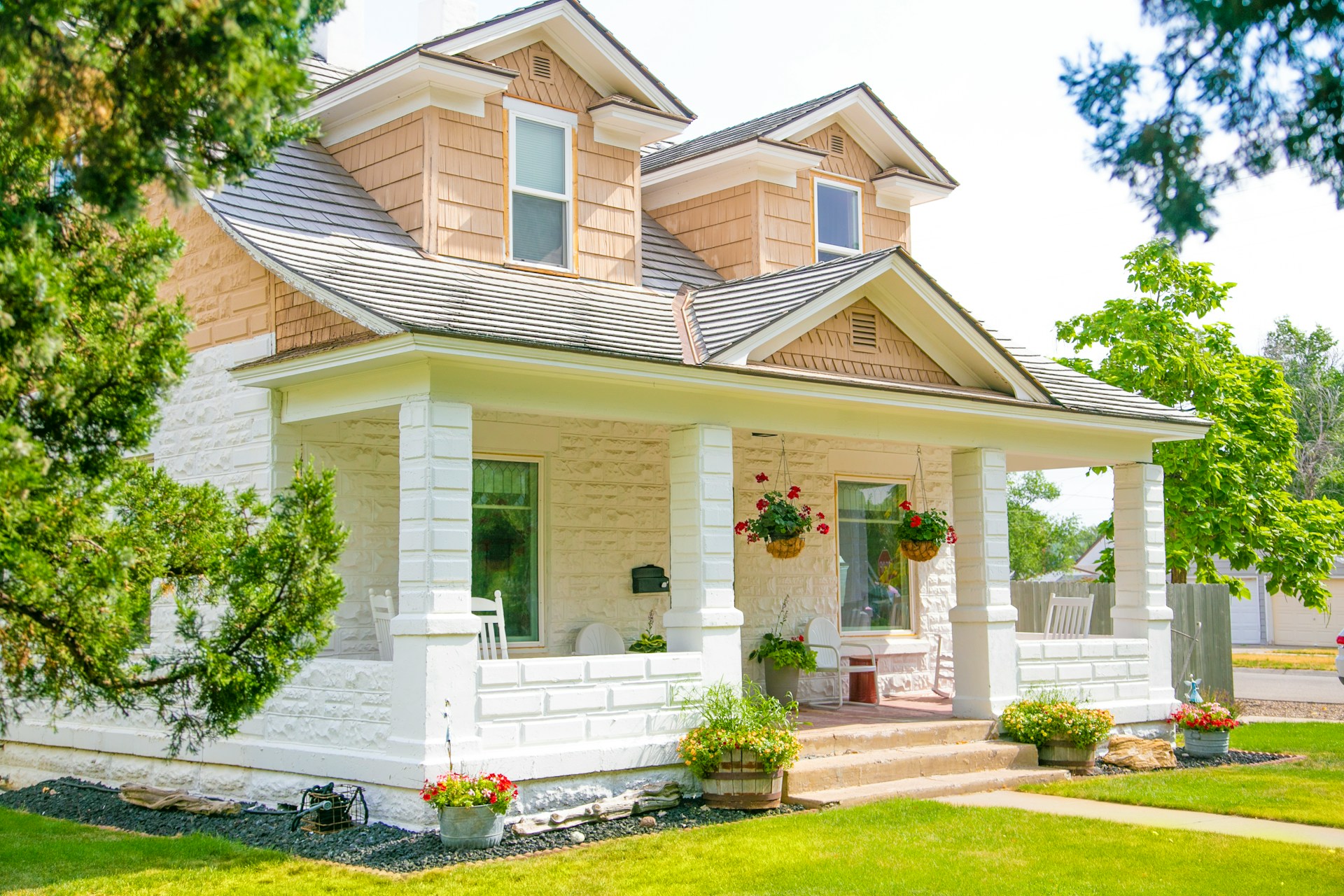
Calling all my fellow homeowners! Have you ever found yourself gazing up at your roof before your next replacement, scratching your head, and wondering, “What material would be the best fit for my roof style?” Well, you're not alone! It's a question that's crossed many homeowners' minds, including my own. I personally have a more complex roofing style with a low slope, so, I know asphalt shingles wouldn’t work best for my home during my next roof replacement.
Huh? How do you know that? Well, besides the fact that I work for a roofing company, RoofCrafters does a fabulous job educating all homeowners alike on the ins and outs of their roofs, specifically roofing material compatibility! What does that mean exactly? It’s simple, really: what works for steep-pitch roofs may not necessarily work for low-slope roofs - that’s all there is to it.
Don’t think too hard about it, my friend! Compare this idea to clothing: my friend Cate who has tanned skin looks fabulous in the color Fuschia, whereas I, who’s on the pale side, can’t really pull it off. Although roofing material compatibility is a bit more complex than color matching, it’s the same concept! So, stay tuned to the end of this article to find out what exactly roofing material compatibility is, which materials work best for different roof styles, and why it’s important! Let’s dive in.
What is Roofing Material Compatability?
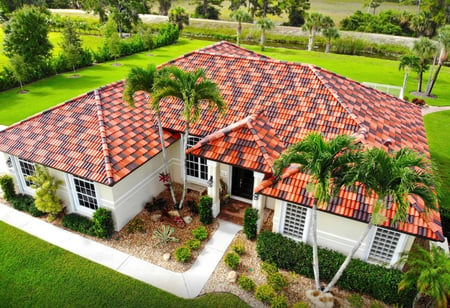
Alright, so, what exactly do you mean? Listen, I get it. There’s a lot of thought that goes into choosing the right roof for your home, but did you know that your roof design could affect your options? Not just for structural reasons, but for curb appeal and aesthetics, too. When we talk about roofing material compatibility in terms of roofing style, it means choosing materials that complement the overall design and structure of your roof.
For example, if you have a traditional-style home, you might opt for asphalt shingles or clay tiles. On the other hand, if you have a modern-style home, metal roofing or flat roofs might be more suitable. The key is to select materials that enhance the aesthetic appeal and functionality of your roof. Structurally speaking, if you have a flat or low slope roof, asphalt shingles wouldn’t necessarily perform well, and your roofer may not even allow the installation due to building codes or potential issues that may arise with this specific material on a flat roof in the future.
Which Roofing Materials Are the Most Compatible With My Roof Style?
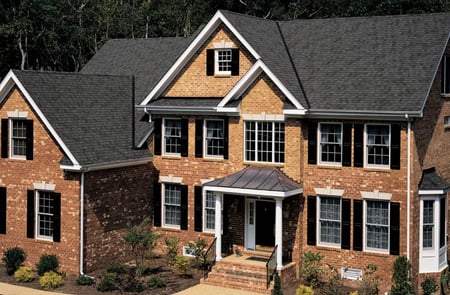
The compatibility of roofing materials depends on various factors, including the climate, architectural style, and local building codes. Here are the 6 most common roofing materials and their compatibility considerations:
.png?width=1200&height=200&name=Recommended%20Reading%20(76).png)
Asphalt shingles: They're compatible with most roof types, versatile, and widely used. They work well with steep-sloped roofs, too!
Metal roofing: Lightweight and suitable for various roof slopes, metal roofing can be used on steep-sloped or low-sloped roofs.
Wood shingles/shakes: Compatible with steep-sloped roofs, wood shakes, and shingles provide a natural and aesthetically pleasing look. However, local fire codes may restrict their use in certain areas.
Clay or concrete tiles: Suitable for Mediterranean or Spanish-style architecture, they are compatible with steep-sloped roofs. However, the structure should be able to support the added weight.
Slate roofing: Durable and aesthetically pleasing, but heavy! Slate roofing requires a strong roofing structure to support the weight. They are typically used on steep-sloped roofs.
Synthetic roofing materials: Some modern synthetic materials mimic the look of traditional materials but may be lighter and more versatile. Compatibility depends on the specific type.
All in all, it's essential to consider local building codes, climate conditions, and the specific design of your roof when choosing roofing materials. Consulting with your local roofing contractor for a professional inspection can help you determine the most compatible material!
Why Is Roofing Material Compatability Important?
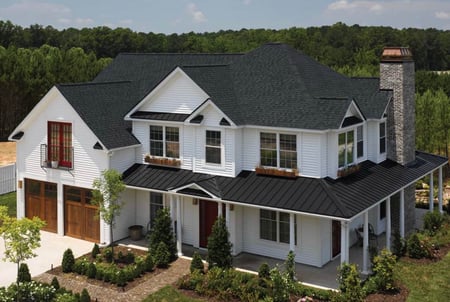
So, why exactly is roofing material compatibility important? I’m glad you asked! Choosing the right material for your roof style is crucial; let’s go through the main 7 reasons:
Structural integrity: Using compatible materials ensures that your roof's structure can support the weight and characteristics of the chosen roofing material. This is vital for the overall integrity and safety of your home.
Performance and durability: Matching roofing materials with the specific design and slope of your roof contributes to better performance and durability. Compatible materials are more likely to withstand weather elements, ensuring a longer lifespan for your roof.
Weather resistance: Different roofing materials have varying levels of resistance to weather conditions such as rain, snow, wind, and sunlight. Choosing materials compatible with your climate helps maintain the roof's effectiveness in protecting your home.
Aesthetic appeal: Compatible materials contribute to the overall aesthetic appeal of your home. Choosing materials that complement the architectural style and design of your house enhances its visual appeal and curb appeal.
Compliance with building codes: Local building codes often dictate the types of roofing materials that can be used in a particular area. Ensuring compatibility with these codes is essential to avoid legal issues and ensure that your roof meets safety standards.
Cost-effectiveness: Using compatible materials can be cost-effective in the long run. It reduces the risk of premature wear and damage, minimizing the need for repairs or replacements.
Energy efficiency: Some roofing materials contribute to energy efficiency by providing better insulation. Choosing materials compatible with energy-efficient practices can result in reduced energy consumption and lower utility bills.
All in all, roof material compatibility is important because it ensures that the different components of your roof work together effectively. When materials are compatible, they can be properly installed, provide adequate protection against the weather, and have a longer lifespan. Choosing incompatible materials can lead to issues such as leaks, premature deterioration, and even structural damage. So, it's essential to consider compatibility to ensure the durability and performance of your roof.
Finding Your Perfect Roof Match: The Final Takeaway
Well, folks, we've come a long way on this roofing material compatibility journey, haven't we? We've explored the wide world of roofing materials, from the rustic charm of wood shakes to the sleek durability of metal. We've learned that the best material for your roof isn't just about looks, but also about compatibility with your roof style and your local climate.
That being said, choosing the right roofing material can feel like a daunting task, but remember, it's all about finding that perfect balance between aesthetics, durability, and compatibility. Every roof is unique, just like every homeowner, and there's a perfect match out there waiting for you, ready to protect your home.
So, whether you're gearing up for a roof makeover or just like to be in the know, there’s value in this information! Remember, your roof is more than just a shelter, it's a statement about your home. Choose wisely, and your roof will not only look great but stand the test of time. If you’re gearing up for a much-needed replacement, be sure to hit the “Schedule an Inspection” button down below. One of our experts will evaluate your roof, and together, you’ll find the best fit for your home!
My name is Cassie, and I’m the Content Manager here at RoofCrafters. I was born and raised in Chicago, Illinois, and made my way out to Florida post-college graduation. I’m incredibly passionate about writing and creating valuable content that helps others with the collaboration of my marketing team. When I’m not working, I enjoy shopping (a little too much), spending time at the beach, and reading!



